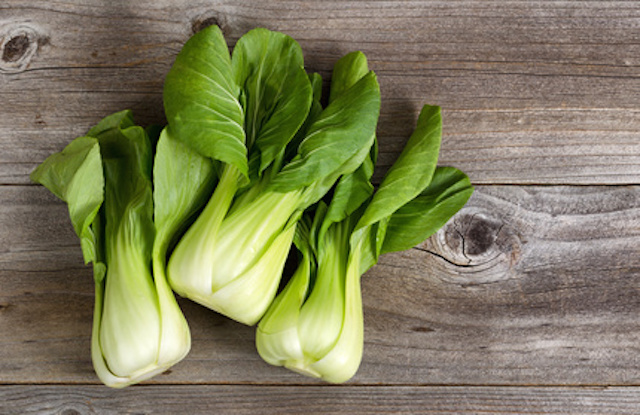Bok Choy, also known as Chinese cabbage, is a cruciferous vegetable just like broccoli, cauliflower, and Brussel sprouts. These cruciferous vegetables are key to overall health and are packed with vitamins and nutrients. This is why they are often called nature’s potent multi-vitamins.
Let’s look at the many health benefits of eating Bok Choy:
Cancer-preventing:
Bok Choy is linked to cancer prevention and helps reduce free radicals in the body. It contains nutrients known as glucosinolates. Upon digestion, this compound can help to eliminate carcinogens before they damage or alter DNA. It helps prevent healthy cells from converting to malignant cells that lead to cancer. Cruciferous vegetables are shown to help prevent lung, breast and prostate cancers.
Eye health:
Bok Choy is great for eye health, as they have a carotenoid known as lutein found in most cruciferous vegetables. Lutein helps protect against age-related disease such as cataracts and macular degeneration.
Heart health:
Including organic bok choy in your diet can help prevent cardiovascular disease. Cruciferous vegetables protect against heart disease, largely due to their high concentration of vitamin C and beta-carotene.
One study from the Vanderbilt School of Medicine showed that cruciferous vegetable consumptions in associated with reduced risk of heart disease. Another study published in the American Journal of Nutrition shows that cruciferous vegetables lower the risk of heart attack. The beta-carotene found in these vegetables decreases the risk of death from cardiovascular disease.
Stroke-preventing:
Diets rich in cruciferous vegetables may also help reduce the risks of ischemic stroke.
According to another study by the Harvard School of Public Health, one serving of fruits or vegetables a day can lower the risk of a stroke by 6 percent. Vegetables in the cruciferous family were found to be the most protective, along with green leafy vegetables and citrus fruits.
Weight loss:
Bok Choy is very low in calories, with only 20 per cup. It is also an excellent source of dietary fiber, with 1.7g per cup. Foods low in calories and high in dietary fiber are key to losing weight.
AS ALWAYS: Check with your health practitioner before you change your diet. This organic food is not meant to replace any treatment or drugs you are taking.
For the health benefits of cruciferous vegetables.
For an anti-inflammatory Bok Choy recipe.
REFERENCES:
1. “Fruit and Vegetable Intake in Relation to Risk of Ischemic Stroke.” National Center for Biotechnology Information. U.S. National Library of Medicine, n.d. Web. 06 Oct. 2013.
2. “Brassica Vegetables and Cancer Prevention. Epidemiology and Mechanisms.” National Center for Biotechnology Information. U.S. National Library of Medicine, n.d. Web. 06 Oct. 2013.
3. “GSTT1 Genotype Modifies the Association between Cruciferous Vegetable Intake and the Risk of Myocardial Infarction.” The American Journal of Clinical Nutrition. Am J Clin Nutr, 2007. Web. 06 Oct. 2013.
4. “Cruciferous Vegetable Consumption Is Associated with a Reduced Risk of Total and Cardiovascular Disease Mortality.” National Center for Biotechnology Information. U.S. National Library of Medicine, n.d. Web. 06 Oct. 2013.
5. “Nutrition Facts and Analysis for Cabbage, Chinese (pak-choi), Cooked, Boiled, Drained, without Salt.” Self Nutrition Data. Self Nutrition Data, n.d. Web. 06 Oct. 2013.

















